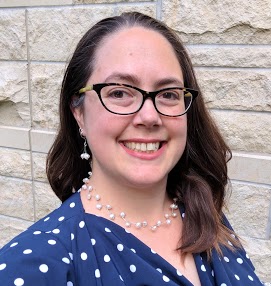
Physics Professor Sayre Working on Two Newly Funded NSF Grants
Eleanor Sayre, professor of physics, will begin work soon on two newly funded NSF awards for collaborative projects. These grants are the latest in a series of projects which makes physics and STEM education more accessible to the US and international communities of education researchers.
A collaborative project with Rochester Institute of Technology has resulted in a 3-year, $1 million NSF Building Capacity in STEM Education Research grant entitled Institute in Research Methods for Professional Development for Emerging Education Researcher (PEER) Field Schools.
This award will help train a diverse group of more than 600 emerging education researchers, engaging them in high quality fundamental research, relevant theories and methodologies.
Sayre and her research group will at K-State will work DePaul University and RIT to aid in developing field schools around the country to train the next generation of discipline-based education researchers.
The PEER project has been successfully implemented in several locations worldwide to include Rochester, NY; Cologne, Germany; Kibungo, Rwanda; Monterrey, Mexico; and Vancouver, British Columbia.
Sayre will also be working on another project as a member of the organizing committee for an NSF grant of $50,000 that has been awarded. She will work with faculty at DePaul, University of Northern Colorado, Rochester Institute of Technology, and University of Laverne to organize an international conference for physics and mathematics education researchers planned for summer 2021. 30 participants in mathematics and physics education will form working groups to develop future research and grant proposals around building capacity for discipline-based education research in math and physics.
Sayre joined the physics department in 2011. She has more than 70 peer-reviewed publications in discipline-based education research. She conducts research on how students develop professional identity in physics, linking the development of their technical knowledge with their perceptions of what it means to do physics.